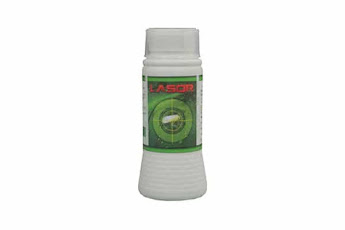Neem Pesticide: Nature's Answer
to Sustainable Crop Protection
Introduction
The global agriculture industry
progresses toward sustainable eco-friendly approaches which create rising
demand for natural pesticides that replace chemical alternatives. Neempesticide stands as a botanical insecticide made from neem tree extract which
determines its powerful insecticidal action.
As the main provider of organic
agricultural solutions Jaivik Crop Care works toward promoting environmentally
friendly farm methods while manufacturing crop protection products for safer
agricultural practices. The neem-based pesticides provided by their company
make sustainable farming possible by providing farmers with an organic
chemical-free pest control solution.
What is Neem Pesticide
The production of Neem pesticide
originates from natural materials of Azadirachta indica neem trees which
include their seeds together with their leaves. Indian farmers have
traditionally employed neem throughout agricultural history because the natural
properties of this plant protect them from insects and fungus. The main
ingredient azadirachtin from neem trees interrupts insect life cycles by
causing problems with consumption along with mating behavior and organism
growth stages.
Many people consider Neem
pesticide beneficial because it has three main characteristics:
This insecticide demonstrates two
vital characteristics: broad-spectrum effectiveness which targets aphids and
whiteflies and mites and caterpillars and mealybugs and it also remains
biodegradable as it degrades naturally.
The material shows natural
decomposition behavior which creates no destructive chemical waste during either
soil or crop contact.
• Non-toxic
to humans and animals – Safer for farmers, consumers, and beneficial insects
like bees
Benefits of Neem Pesticide
1.Eco-Friendly Solution: The usage of Neem
pesticide allows farmers to replace synthetic chemicals therefore maintaining
both healthy soils and biodiversity.
2.Pest Resistance Management: The distinct
way neem functions in pest control functions to avert pest resistance which
makes the treatment effective as populations adapt.
3.Safe for Beneficial Insects: The natural
characteristics of neem differentiate it from typical pesticides since it does
not damage beneficial insects such as bees and natural predators like ladybugs
or spiders.
4.Multi-Functional Use: Neem functions as
both an insect-blocking and fungicidal and antibacterial substance to safeguard
crops from various damaging agents.
5.Supports Organic Farming: Eco-conscious
growers can use neem-based products as certified organic agricultural products
have approvals from multiple certification bodies.
Application and Usage
The application method of Neem
pesticide depends on the pest type because it functions equally as foliar spray
and soil drench treatment. The diluted mixture of Neem pesticide receives
optimum outcomes when applied in early evening or morning periods by direct
plant spraying with water solution.
IPM strategies benefit greatly
from integrating neem pesticide usage as it enables the combination of
traditional pest control methods with contemporary biological controls.
Why Choose Jaivik Crop Care
Jaivik
Crop Care distinguishes itself from other agricultural companies through its
focus on organic sustainable solutions for crop management. The company
dedicated itself to developing superior neem pesticides which farmers
throughout the agricultural sector now rely on because of their high quality
standards.
Farmers
depend on Jaivik Crop Care since these are their main reasons:
• High Concentration Products – Formulated
with optimal levels of azadirachtin for maximum pest control
The
company implements strict production standards to create pure products of
consistent quality.
The
company operates its manufacturing processes through sustainable procurement
methods while maintaining environmentally friendly factory practices.
Agronomic
specialists from the company provide technical guidance for both crop-specific
usage instructions and proper application techniques.
Conclusion
The future of farming will rely
more on green strategies where neem pesticide serves as an indispensable weapon
to achieve both healthy production systems and environmental cleanness. The
smart choice for contemporary farming lies in neem pesticide because of its
safe performance alongside organic cultivation methods.
Jaivik Crop Care provides natural
farming solutions through its established foundation to help farmers defend
their crops using environmentally friendly methods. The combination of
effective results with environmentally-friendly solutions through neem-based
products positions Jaivik to advance sustainable agricultural practices and
responsible crop care practices.





